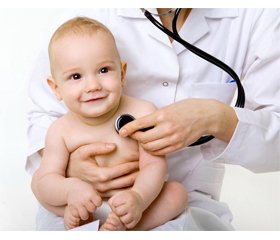Резюме
У статті обговорюються питання щодо сучасних етичних стандартів у педіатрії, розкривається суть поняття «хороший педіатр». Авторами розглядаються ключові компоненти практичної професійної діяльності педіатра, як-от чесність і цілісність, надійність і відповідальність, повага до інших, співчуття і чуйність, самовдосконалення, самосвідомість та знання професійних меж надання медичної допомоги, зв’язки і співробітництво, альтруїзм і захист інтересів пацієнта та членів його родини. Надана інформація щодо основних етичних принципів, обов’язків і компетенцій практичної професійної діяльності педіатра в американській системі охорони здоров’я та етичних засад діяльності лікаря в Україні. Описані стандарти поведінки педіатра, за якими він може бути оцінений як студентами-медиками, резидентами та колегами, так і батьками, що необхідно для надання якісної медичної допомоги дітям і підліткам. Розглянуті причини формування конфліктних ситуацій у практиці педіатра та підходи до їх ефективного вирішення, а також роль конфіденційності і колегіальності.
This article discusses the issues of modern ethical standards in pediatrics, considers the essence of the concept “a good pediatrician”. The key components of the practical professional activity of a pediatrician, such as honesty and integrity, reliability and responsibility, respect for others, compassion and sensitivity, self-improvement, self-awareness and knowledge of the professional limits of providing medical care, connections and cooperation, altruism and protection the interests of the patient and members of his/her family are considered by the authors. Information is provided regarding the basic ethical principles, duties and competencies of the practical professional activity of a pediatrician in the American healthcare system and the ethical principles of a doctor’s activity in Ukraine. The standards of behavior of a pediatrician are described, according to which he can be evaluated both by medical students, residents and colleagues, as well as by parents, which is necessary for providing quality medical care to children and adolescents. The reasons for the formation of conflict situations in the pediatrician’s practice and approaches to their effective resolution are considered, as well as the role of confidentiality and collegiality.
Список литературы
1. Антипкін Ю., Знаменська Т., Марушко Р., Дудіна О., Лапшин В., Власов О. Стан медичної допомоги новонародженим в Україні. Неонатологія, хірургія та перинатальна медицина. 2020. 10(4(38). 5-24. https://doi.org/10.24061/2413-4260.X.4.38.2020.1
2. Етичний кодекс лікаря України. [Електронний ресурс] https://zakon.rada.gov.ua/rada/show/n0001748-09#Text. Дата звернення 05.05.2023.
3. ABIM Foundation, ACP–ASIM Foundation, and European Fe–deration of Internal Medicine. Medical Professionalism in the New Millennium: A Physician Charter. Annals of Internal Medicine. 2002. 136. 243-246. http://annals.org/aim/article/474090/medical-professiona–lism-new-millennium-physician-charter. Accessed April 26, 2023.
4. American Board of Pediatrics. Appendix F: professionalism. In: Program Director’s Guide to the ABP: Resident Evaluation, Tracking & Certification American Board of Pediatrics. Education and Training Committee. Chapel Hill, NC: American Board of Pediatrics, 2003.
5. American Board of Pediatrics. Education and Training Committee. Teaching, Promoting and Assessing Professionalism Across the Continuum: A Medical Educator’s Guide. https://www.abp.org/professionalism-guide. Accessed April 26, 2023.
6. American Academy of Pediatrics. Medical Home Initiatives for Children with Special Needs Project Advisory Committee. The medical home. Pediatrics. 2002 Jul. 110(1 Pt 1). 184-6. PMID: 12093969.
7. American Academy of Pediatrics. Committee on Pediatric Workforce. Scope of practice issues in the delivery of pediatric health care. Pediatrics. 2013 Jun. 131(6). 1211-6. doi: 10.1542/peds.2013-0943. Epub 2013 May 27. PMID: 23713109.
8. American Medical Association. Code of Medical Ethics: Current Opinions with Annotations. Chicago, IL: American Medical Association, 2000.
9. Berwick D.M. Salve Lucrum: The Existential Threat of Greed in US Health Care. JAMA. 2023 Feb 28. 329(8). 629-630. doi: 10.1001/jama.2023.0846. PMID: 36716043.
10. Byyny Richard L., Maxine A. Papadakis, and Douglas S. Paauw. Medical Professionalism Best Practices. 2015. MS. Menlo Park. Alpha Omega Alpha Honor Medical Society, 2015. Web. 11 Feb. 2016. http://www. alphaomegaalpha.org/medprof2015.html#Text.
11. Fallat M.E., Glover J. and the Committee on Bioethics. Professionalism in Pediatrics. Pediatrics. 2007. 120 (4). e1123-e1133. https://doi.org/10.1542/peds.2007-2230.
12. Gathright M. Critical Synthesis Package: Professionalism Mini-Evaluation Exercise (P-MEX). MedEdPORTAL Publications; 2014. Available from: https://www.mededportal.org/publication/9929; http://dx.doi.org/10.15766/mep_2374-8265.9929.
13. Huckman R.S., Raman A. Medicine’s continuous improvement imperative. JAMA. 2015 May 12. 313(18). 1811-2. doi: 10.1001/jama.2015.4619. PMID: 25965220.
14. Myers J.S., Nash D.B. Graduate medical education’s new focus on resident engagement in quality and safety: will it transform the culture of teaching hospitals? Acad. Med. 2014 Oct. 89(10). 1328-30. doi: 10.1097/ACM0000000000000435. PMID: 25054414.
15. National Board of Medical Examiners. Embedding Professionalism in Medical Education: Assessment as a Tool for Implementation. Philadelphia, PA: National Board of Medical Examiners, 2003.
16. Papadakis M.A., Paauw D.S., Hafferty F.W., Shapiro J., Byyny R.L.; Alpha Omega Alpha Honor Medical Society Think Tank. Perspective: the education community must develop best practices informed by evidence-based research to remediate lapses of professionalism. Acad. Med. 2012 Dec. 87(12). 1694-8. doi: 10.1097/ACM.0b013e318271bc0b. PMID: 23095921.
17. Petersdorf R.G. Defining the good doctor. JAMA. 1993 Apr 7. 269(13). 1681-2. Erratum in: JAMA. 1993 May 12. 269(18). 2370. PMID: 8455304.
18. Rabow M.W., Lapedis M., Feingold A., Thomas M., Remen R.N. Insisting on the Healer's Art: The Implications of Required Participation in a Medical School Course on Values and Humanism. Teach Learn Med. 2016. 28(1). 61-71. doi: 10.1080/10401334.2015.1107485. PMID: 26787086.
19. Yusuf S., Garfunkel L., Forster C., Serwint J.R. The Current State of Pediatric Health Care: Changes and Challenges. Pediatr. Rev. 2019 Oct. 40(Suppl. 1). 8-9. doi: 10.1542/pir.2019-40S08. PMID: 31575684.
20. Sulmasy L.S., Bledsoe T.A.; ACP Ethics, Professionalism and Human Rights Committee. American College of Physicians Ethics Manual: Seventh Edition. Ann. Intern. Med. 2019 Jan 15. 170(2_Suppl). S1-S32. doi: 10.7326/M18-2160. PMID: 30641552.
21. Turner A., Ricketts T., Leslie L.K. Comparison of Number and Geographic Distribution of Pediatric Subspecialists and Patient Proximity to Specialized Care in the US Between 2003 and 2019. JAMA Pediatr. 2020. 174(9). 852-860. doi: 10.1001/jamapediatrics.2020.1124.
22. van Schaik S.M., Chang A., Fogh S., Haehn M., Lyndon A., O’Brien B., et al. Jump-Starting Faculty Development in Quality Improvement and Patient Safety Education: A Team-Based Approach. Acad. Med. 2019 Nov. 94(11). 1728-1732. doi: 10.1097/ACM.0000000000002784. PMID: 31663959.
23. Volosovets O.P., Beketova G.V., Naumenko O.M. еt al. Human resources of pediatric healthcare in Ukraine. Pediatrics. Eastern Europe. 2022. 10(1). 175-182. DOI: https://doi.org/10.34883/PI.2022.10.1.022.

